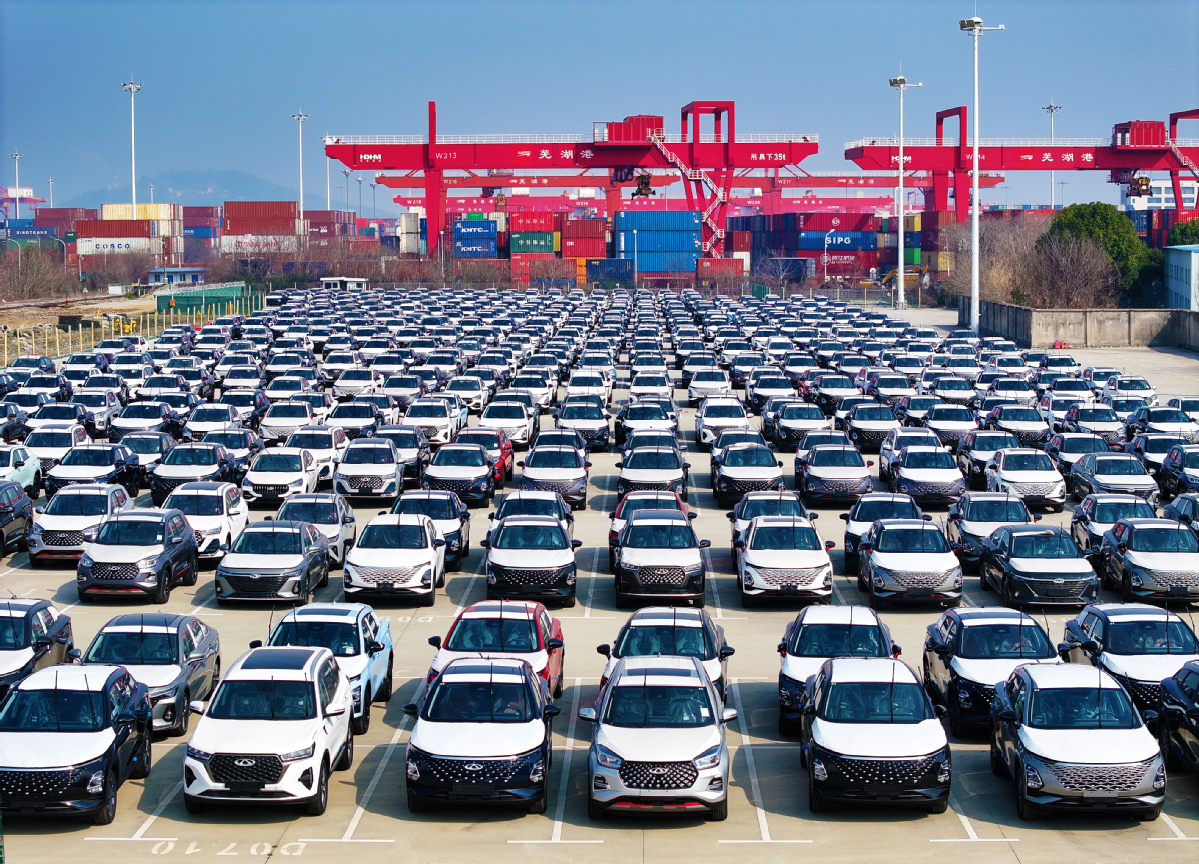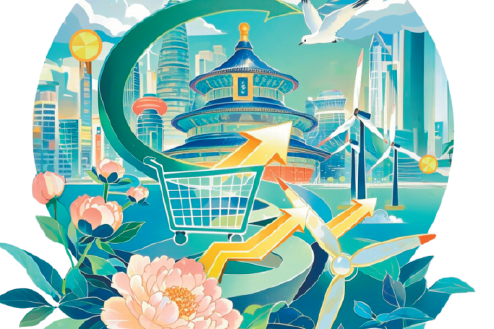Beijing-Brussels cooperation needed more than ever before


Introducing her new College of Commissioners on Wednesday, European Commission President Ursula von der Leyen vowed to work harder to close the innovation gap between the European Union, and the United States and China, to realize the landmark Green Deal and to better safeguard the EU's economic security, including its defense industries.
The daunting tasks she laid out are largely based on a future EU competitiveness report drafted by former Italian prime minister and former European Central Bank president Mario Draghi.
However, the real talk in Brussels these days is not on the Economic Commission president's priorities but on the growing uncertainties over the incoming US administration led by Donald Trump. There is great anxiety over the possibility of Trump launching trade and tariff wars against not only China but also the EU given his contempt for the bloc. Trump's unilateral policies and his withdrawal of the US side from international treaties such as the Paris Agreement still haunt many Europeans. The worst-case scenario for many EU leaders is Trump cutting a deal with Russia over the Ukraine crisis without consulting Brussels.
Fabian Zuleeg, chief executive and chief economist at European Policy Center, was blunt on Wednesday when he said Trump was "bad" for the EU on many fronts, from democracy and security to sustainability and prosperity — a view widely shared by EU officials.
While many EU officials and pundits agree that the EU and China have more in common in upholding multilateralism, some have suggested that the EU persuade the China hawks in the incoming Trump administration to get tough on China in a bid to get some leniency from Washington on the trade front.
The powerful and principled response of Mexican President Claudia Sheinbaum on Tuesday to Trump's tariff threat and accusation that Mexico is the root cause of the US' drug problems has prompted many Europeans to ask when their leaders would have the guts to do the same.
As a close observer of EU affairs since late 2018, I'm astonished to see how the EU has allowed geopolitics to hijack its agenda, especially in relation to China, in recent years.
By defining China as the EU's cooperation partner, economic competitor and systemic rival since 2019, and proposing a strategy for de-risking from China, Brussels has poisoned the well of China-US relations. De-risking is a lose-lose proposition for both sides — efforts to achieve that goal have already resulted in the slowing down of the EU economy.
By tightening its screening mechanisms, Brussels has barred many Chinese entities from investing in the EU — thus helping boost the EU's economy. And Brussels' failure to ratify the China-EU Comprehensive Agreement on Investment has deprived EU businesses of the many opportunities to expand their presence in China's vast market.
The EU's discriminatory policies targeted at Chinese-made electric vehicles and some other low-carbon products, if allowed to continue, will hurt the EU's ambitious Green Deal as China is a global leader in green technology and manufacturing.
Besides, many want China and the EU to play a more important role in the global fight against climate change, because the next US president may put the issue on the back burner again.
It's good that the European Commission chief did not indulge in fearmongering about China's Belt and Road Initiative on Wednesday when she talked about the EU's Global Gateway initiative. Studies show the EU and Chinese companies have been collaborating on some Global Gateway projects.
Indeed, the EU and China should deepen their collaboration on these two initiatives by not allowing their differences to hinder the building of infrastructure facilities and improve connectivity across the developing world.
The best way to reduce the anxiety over Trump 2.0 is for China, the EU and other economies to jointly uphold multilateralism and deepen their cooperation.
China-EU cooperation has benefited both sides over the past more than four decades. Those who are exaggerating and/or fearmongering about the differences between the EU and China have no idea that the two sides were far more different 50 years ago than they are now, and yet they engaged in mutually beneficial cooperation for decades.
To be sure, China-EU cooperation can inject much-needed certainty and stability into the volatile world and help the EU achieve its ambitious goals.
The author is chief of China Daily EU Bureau based in Brussels.


































